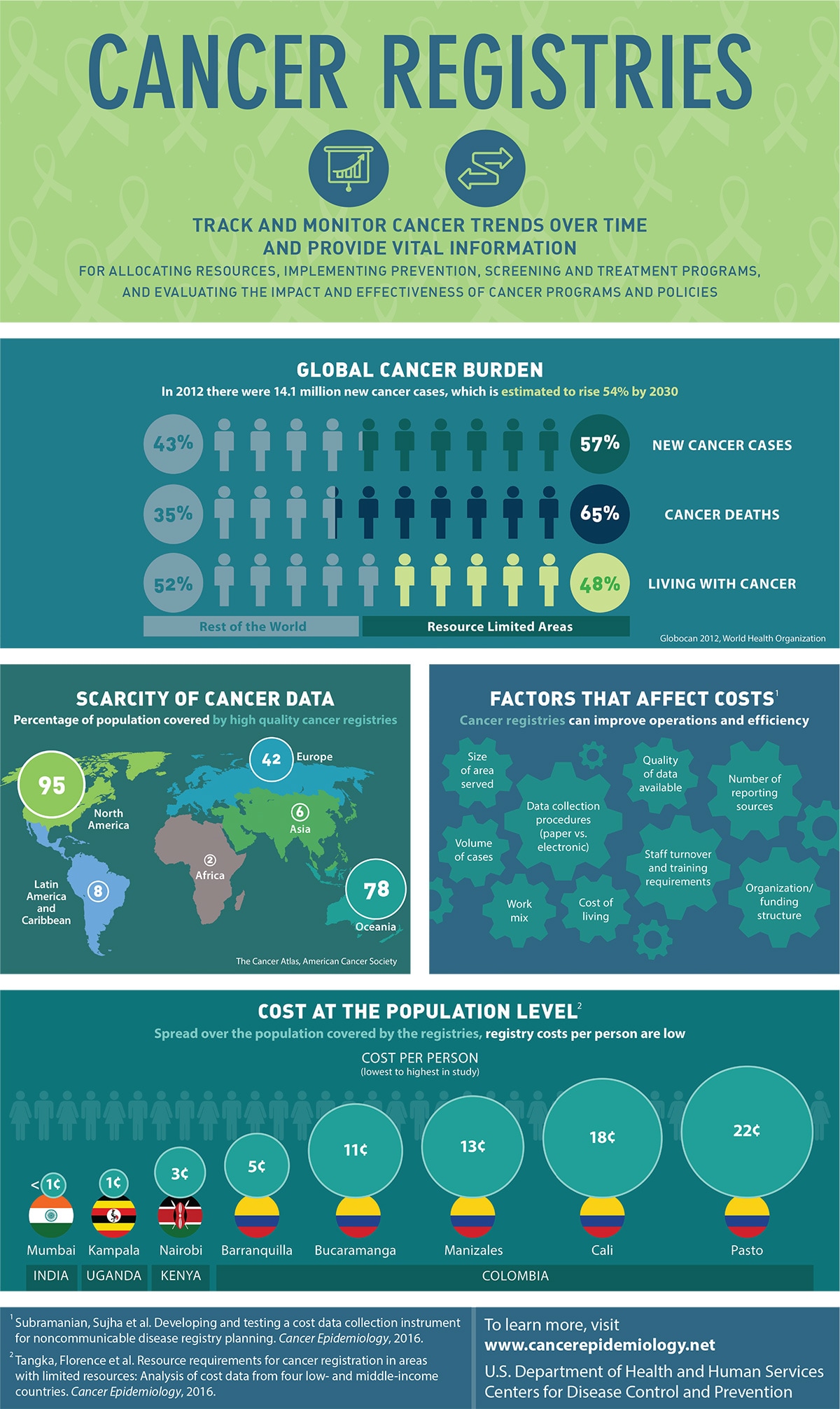February 4 is World Cancer Day: Global Cancer Burden
February 4th, 2017
Cancer Registries
Track and monitor cancer trends over time and provide vital information for allocating resources, implementing prevention, screening and treatment programs, and evaluating the impact and effectiveness of cancer programs and policies
Global Cancer Burden
In 2012 there were 14.1 million new cancer cases, which is estimated to rise 54% by 2030
- 57% New cancer cases
- 65% cancer deaths
- 46% Living with cancers
Source: Globocan 2012, World Health Organization
Scarcity of Cancer Data
Percentage of population covered by high quality cancer registries
- 95% North America
- 8% Latin America and Caribbean
- 2% Africa
- 42% Europe
- 6% Asia
- 78% Oceania
Source: The Cancer Atlas, American Cancer Society
Factors that Affect Costs 1
Cancer registries can improve operations and efficiency
- Size of area served
- Data collection procedures (paper vs. electronic)
- Volume of cases
- Quality of Data available
- Number of reporting sources
- Staff turnover and training requirements
- Cost of living
- Organization/funding structure
Cost at the Population Level2
Spread over the population covered by the registries, registry costs per person are low
Cost per person (lowest to highest in study)
India
- Mumbai, less than 1 cent
Uganda
- Kampala, 1 cent
Kenya
- Nairobi, 3 cents
Colombia
- Barranquilla, 5 cents
- Bucaramanga, 11 cents
- Manizales, 13 cents
- Cali, 18 cents
- Pasto, 22 cents
To learn more, visit http://www.cancerepidemiology.net
U.S. Department of Health and Human Services
Centers for Disease Control and Prevention
1Subramanian, Sujha et al. Developing and testing a cost data collection instrument for noncommunicable disease registry planning. Cancer Epidemiology, 2016.
2Tangka, Florence et al. Resource requirements for cancer registration in areas with limited resources: Analysis of cost data from four low- and middle-income countries. Cancer Epidemiology, 2016.


